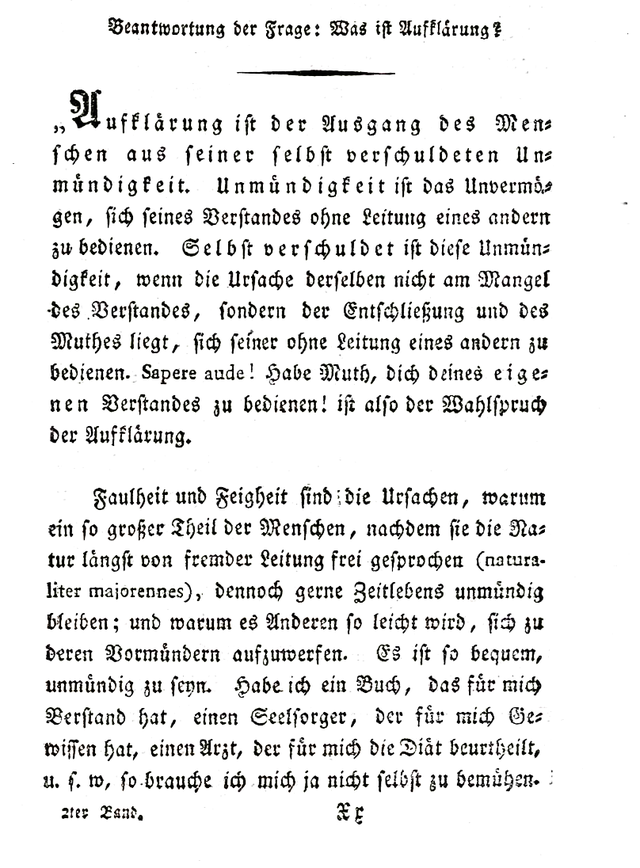Top Qs
Timeline
Chat
Perspective
What Is Enlightenment?
1784 essay by Immanuel Kant From Wikipedia, the free encyclopedia
Remove ads
"Answering the Question: What Is Enlightenment?" (German: Beantwortung der Frage: Was ist Aufklärung?), often referred to simply as "What Is Enlightenment?", is a 1784 essay by the philosopher Immanuel Kant. In the December 1784 publication of the Berlinische Monatsschrift (Berlin Monthly), edited by Friedrich Gedike and Johann Erich Biester, Kant replied to the question posed a year earlier by the Reverend Johann Friedrich Zöllner, who was also an official in the Prussian government. Zöllner's question was addressed to a broad intellectual public community, in reply to Biester's essay titled "Proposal, not to engage the clergy any longer when marriages are conducted" (April 1783). A number of leading intellectuals replied with essays, of which Kant's is the most famous and has had the most impact. Kant's opening paragraph of the essay is a much-cited definition of a lack of enlightenment as people's inability to think for themselves due not to their lack of intellect, but lack of courage.[1][2][3][4]

Remove ads
See also
References
Further reading
External links
Wikiwand - on
Seamless Wikipedia browsing. On steroids.
Remove ads
